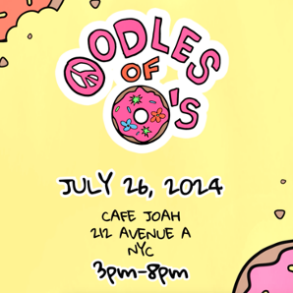Hip-hop, a genre that emerged in the 1970s as a cultural movement among African Americans and Latino youths in New York City, has since transcended its roots to become a global phenomenon. Its evolution from the streets of the Bronx to the forefront of mainstream music is a testament to its impact on society, culture, and the music industry at large. Hip-hop music, characterized by its rhythmic beats, complex lyrics, and often socially conscious themes, has given voice to stories of struggle, triumph, and life in the urban landscape. Over the decades, numerous tracks have risen to legendary status, influencing not only music but also fashion, language, and politics. Compiling a list of the Top 15 Best Hip-Hop Songs of All Time is no small feat, given the genre’s rich history and the diverse array of styles it encompasses. Such a list must take into account not only the lyrical prowess and innovative beats that define the genre but also the cultural significance and lasting impact of each track. From the pioneering work of artists like Grandmaster Flash and the Furious Five, to the groundbreaking narratives of Tupac Shakur and The Notorious B.I.G., and onto the genre-blending sounds of modern icons like Kendrick Lamar and Kanye West, this compilation seeks to honor the legacy of hip-hop. Each song selected has not only dominated charts and influenced peers but has also resonated with generations of listeners, marking milestones in the evolution of hip-hop. In this article, we delve into the stories behind these iconic tracks, exploring the creativity, controversies, and collaborations that have made them the Top 15 Best Hip-Hop Songs of All Time, and reflecting on their enduring influence on music and culture worldwide.
1. The Message by Grandmaster Flash and the Furious Five
“The Message” by Grandmaster Flash and the Furious Five is a groundbreaking hip-hop track that has left an indelible mark on the genre and music history. Released in 1982, it was one of the first tracks to detail the struggles and realities of life in the inner city, diverging from the party-centric themes prevalent in early hip-hop music. The song’s innovative use of synthesizer riffs, turntable scratches, and a catchy hook encapsulated a gritty narrative of urban decay, poverty, and the challenges of living in neglected neighborhoods. Its lyrical depth, delivered with a mix of spoken word and rap, painted a vivid picture of the societal issues facing the African American communities in the United States during the early 1980s. The chorus, “Don’t push me ’cause I’m close to the edge, I’m trying not to lose my head,” became an anthem of frustration and a call for attention to the dire circumstances described throughout the verses.
The significance of “The Message” extends beyond its musical innovation; it marked a pivotal moment in hip-hop’s evolution from a genre focused on boasting and party themes to a platform for social commentary and political activism. By addressing topics such as poverty, drug addiction, and the failures of the welfare system, the song challenged listeners and artists alike to reflect on the societal issues of the time. Its influence is evident in the work of subsequent generations of hip-hop artists who have used their music to comment on social and political issues. “The Message” has been widely recognized for its impact, including being inducted into the Grammy Hall of Fame and consistently ranking high on lists of the greatest hip-hop songs of all time. Its legacy as a pioneering work of socially conscious hip-hop continues to inspire and resonate with audiences around the world, cementing its place as one of the top best hip-hop songs of all time.
2. Rapper’s Delight by The Sugarhill Gang
“Rapper’s Delight” by The Sugarhill Gang, released in 1979, is a monumental track in the history of hip-hop, often credited with bringing the genre to a global audience for the first time. Unlike “The Message,” which delved into social commentary, “Rapper’s Delight” was a celebration of fun, boasting, and the art of MCing itself. Its infectious beat, sampled from Chic’s “Good Times,” provided a danceable foundation for the trio’s playful and innovative rhymes. Over the course of a groundbreaking 14-minute runtime (on its longest version), the track showcased the novel concept of rapping as music to the mainstream, introducing a format that would define the genre. Its lyrics, filled with humor, braggadocio, and party vibes, encapsulated the essence of early hip-hop culture’s block parties and battles, making it an instant hit and an enduring classic.
The impact of “Rapper’s Delight” on the music industry and culture at large cannot be overstated. It was the first rap single to achieve significant chart success, breaking into the Top 40 on the Billboard Hot 100 and opening the door for hip-hop as a mainstream music genre. This success paved the way for future hip-hop artists and helped to establish rap as a viable form of musical expression. The track’s catchy lines and beats have made it a staple in the repertoires of DJs and hip-hop enthusiasts worldwide, further cementing its legacy. “Rapper’s Delight” also demonstrated the commercial potential of hip-hop, influencing record labels to invest in the genre and contributing to its rapid evolution in the following decades. Its place in music history as one of the top best hip-hop songs of all time is secured by its pioneering role in popularizing rap music across the globe, making it not just a song but a cultural milestone.
3. The Breaks by Kurtis Blow
“The Breaks” by Kurtis Blow, released in 1980, stands as one of the seminal tracks in hip-hop history, marking a significant moment in the genre’s transition into mainstream music. As one of the first rap songs to be certified gold, it not only showcased Kurtis Blow’s charismatic delivery and innovative production techniques but also highlighted the genre’s commercial viability. The song’s structure, featuring a catchy chorus interspersed with verses that explored themes of life’s ups and downs, or “the breaks,” resonated with a wide audience. Its rhythmic beat, complemented by Blow’s rhythmic storytelling and clever use of breaks—a term referring to the instrumental solos that dancers and DJs would utilize for breakdancing and mixing—helped to solidify the song’s appeal. The infectious chorus, “Brakes on a bus, brakes on a car, breaks to make you a superstar,” became a memorable hook that captured the imagination of listeners.
Beyond its commercial success, “The Breaks” played a crucial role in the evolution of hip-hop by demonstrating the genre’s potential for lyrical depth and storytelling. Kurtis Blow’s engaging narrative style and the song’s accessible beat made it a bridge between the underground hip-hop scene and a broader audience, paving the way for future artists to explore a wide range of themes in their music. The song’s influence extended beyond hip-hop, contributing to the development of breakdancing culture and DJing techniques that became central to the genre’s identity. As one of the top best hip-hop songs of all time, “The Breaks” is celebrated not only for its pioneering sound and cultural impact but also for its role in establishing hip-hop as a powerful medium for expression and innovation. Its legacy continues to inspire artists and fans alike, reinforcing the enduring relevance and vitality of hip-hop music.
4. Straight Outta Compton by N.W.A.
“Straight Outta Compton” by N.W.A., released in 1988, is a seminal track that dramatically shifted the landscape of hip-hop, introducing the raw intensity of gangsta rap to a global audience. The song’s aggressive beats and unapologetically explicit lyrics painted a vivid picture of life in Compton, California, a city plagued by violence, police brutality, and racial injustice. The powerful opening lines delivered by Ice Cube, followed by Eazy-E and MC Ren, set the tone for a track that refused to shy away from the harsh realities faced by African American communities. Its stark portrayal of urban life and systemic oppression was both a reflection of the artists’ personal experiences and a bold statement against societal neglect and racial discrimination.
“Straight Outta Compton” not only marked N.W.A.’s rise to fame but also catalyzed the emergence of West Coast hip-hop as a dominant force in the music industry. The song’s impact was immediate and far-reaching, challenging listeners and sparking controversy with its confrontational lyrics and portrayal of gang culture. Despite—or perhaps because of—its polarizing nature, the track became an anthem for disenfranchised youth, resonating with audiences worldwide who identified with its themes of resistance and rebellion. Beyond its significance in music, “Straight Outta Compton” had a profound influence on popular culture, inspiring a generation of artists and activists to speak out against injustice. As one of the top best hip-hop songs of all time, it remains a powerful testament to hip-hop’s capacity to articulate social grievances, challenge authority, and effect cultural change. Its enduring legacy is evident in its continued relevance and the respect it commands as a groundbreaking work that redefined the boundaries of rap music.
5. It Was a Good Day by Ice Cube
“It Was a Good Day” by Ice Cube, released in 1992, marks a significant departure from the intense and confrontational themes commonly associated with early ’90s gangsta rap, particularly those prevalent in Ice Cube’s previous works with N.W.A. and his solo projects. The track stands out for its reflective and almost serene recounting of a rare, trouble-free day in the midst of the chaotic and often violent life in South Central Los Angeles. With its smooth, laid-back beat sampled from the Isley Brothers’ “Footsteps in the Dark,” Ice Cube narrates a day where everything seems to go right, from winning at dice and basketball to peaceful interactions with the police. This narrative, set against a backdrop of mellow grooves, presents a stark contrast to the gritty realism of his earlier work, offering listeners a glimpse of respite and normalcy in a life otherwise defined by hardship.
“It Was a Good Day” resonated deeply with audiences, becoming one of Ice Cube’s most beloved tracks. It’s celebrated not only for its lyrical craftsmanship but also for the way it highlights the simple joys and moments of peace that can be found even in the most troubled environments. The song’s impact extends beyond its soothing melody and optimistic narrative; it serves as a poignant reminder of the humanity and resilience of individuals living in marginalized communities. As one of the top best hip-hop songs of all time, “It Was a Good Day” endures as a cultural and musical milestone, showcasing Ice Cube’s versatility as an artist and the multidimensional nature of hip-hop itself. Its legacy is a testament to the power of storytelling in music, capable of capturing the complexity of life’s highs and lows with authenticity and hope.
6. Nuthin’ but a ‘G’ Thang by Dr. Dre
“Nuthin’ but a ‘G’ Thang” by Dr. Dre, featuring Snoop Doggy Dogg, from the groundbreaking album “The Chronic” released in 1992, is a quintessential track that epitomizes the laid-back, melodic style of West Coast hip-hop. This song marked a pivotal moment in hip-hop history, introducing the world to the G-Funk era, characterized by its smooth synthesizer basslines, slow grooves, and samples from 1970s funk music. Dr. Dre’s production prowess is on full display, crafting a beat that’s both relaxed and engaging, providing the perfect backdrop for Snoop Dogg’s effortless flow and charismatic delivery. The chemistry between Dre and Snoop is palpable, as they trade verses detailing the day-to-day life and culture in Southern California, blending bravado with a sense of camaraderie and laid-back vibes.
The impact of “Nuthin’ but a ‘G’ Thang” was monumental, not only cementing Dr. Dre’s status as a premier producer in the music industry but also launching Snoop Dogg’s career to unprecedented heights. It was a commercial and critical success, capturing the essence of the early ’90s West Coast lifestyle and influencing countless artists and producers in the years to follow. The song’s catchy hook and memorable lines have become engrained in hip-hop culture, making it one of the genre’s most iconic tracks. Beyond its musical legacy, “Nuthin’ but a ‘G’ Thang” played a crucial role in bringing gangsta rap and West Coast hip-hop to mainstream audiences, showcasing the genre’s diversity and its ability to innovate and influence the broader music landscape. As one of the top best hip-hop songs of all time, it remains a timeless anthem, celebrated for its smooth production, lyrical prowess, and the unique blend of fun and funk that defined an era in hip-hop.
7. Juicy by The Notorious B.I.G.
“Juicy” by The Notorious B.I.G., released in 1994, is a defining track in hip-hop, encapsulating the essence of the American dream through the lens of a young man’s rise from poverty to fame. With its soulful sample from Mtume’s “Juicy Fruit” and Biggie’s smooth, narrative-driven flow, the song is a poignant autobiography that charts Christopher Wallace’s journey from the streets of Brooklyn to becoming one of the most revered figures in music history. The lyrics, “It was all a dream, I used to read Word Up magazine,” open the track with a sense of nostalgia and aspiration, setting the stage for a story of triumph over adversity. Biggie’s vivid storytelling, marked by raw honesty and vulnerability, resonates with listeners, making “Juicy” an anthem of hope and resilience.
Beyond its narrative, “Juicy” stands as a monumental track in the hip-hop genre for its ability to bridge the gap between the underground and mainstream, showcasing the universal appeal of Biggie’s artistry. The song’s commercial success helped solidify the Notorious B.I.G. as a central figure in East Coast hip-hop, amidst the genre’s evolving landscape dominated by West Coast sounds. Its influence extends far beyond its chart performance, as “Juicy” has inspired countless artists to share their own stories of struggle and success, cementing its place as one of the top best hip-hop songs of all time. The legacy of “Juicy” is a testament to the power of hip-hop as a medium for storytelling, offering a glimpse into the complexities of urban life while celebrating the possibility of achievement and the realization of one’s dreams.
8. Passin’ Me By by The Pharcyde
“Passin’ Me By” by The Pharcyde, released in 1993, is a quintessential track within the alternative hip-hop movement, showcasing the genre’s capacity for introspection, vulnerability, and wit. Distinguished by its innovative sample of Quincy Jones’ “Summer in the City” and a catchy hook, the song captures the essence of unrequited love through the lens of four distinct rappers—Bootie Brown, Slimkid3, Imani, and Fatlip—each delivering verses that blend humor with heartache. Their lyrical prowess is matched by a laid-back, jazzy beat that complements the storytelling, creating a soundscape that is both reflective and engaging. The song’s narrative, focusing on the pains and pangs of love not returned, diverges from the prevailing themes of violence and bravado in early ’90s hip-hop, offering a fresh perspective and endearing the group to a wide audience.
“Passin’ Me By” solidified The Pharcyde’s place in hip-hop history, celebrated for its relatable content and the group’s unique, soulful approach to the genre. The track’s enduring popularity is a testament to its timeless quality, resonating with listeners who appreciate its emotional depth and lyrical ingenuity. Beyond its success on the charts, the song has influenced a generation of artists who seek to infuse their music with authenticity and emotional complexity. As one of the top best hip-hop songs of all time, “Passin’ Me By” is a standout example of how hip-hop can explore the intricacies of human emotions, making it a beloved classic that continues to inspire and captivate audiences around the world. Its legacy lies not only in its musical innovation but also in its contribution to the diversification of hip-hop, proving the genre’s ability to articulate a broad spectrum of human experiences.
9. I Used to Love H.E.R. by Common
“I Used to Love H.E.R.” by Common, released in 1994 on his album “Resurrection,” is a profound commentary on hip-hop’s evolution and its impact on its listeners and culture. The song is celebrated for its extended metaphor, in which Common personifies hip-hop as a woman he has known and loved since childhood, detailing how she has changed over the years. This narrative technique allows Common to explore the genre’s shift from socially conscious roots to a more commercialized and, in his view, degraded form. The track’s instrumental, sampling George Benson’s “The Changing World,” provides a smooth, jazzy backdrop that complements Common’s reflective and nuanced lyricism. His articulate verses lament the transformation of hip-hop, critiquing its move towards glorifying violence and materialism, while longing for a return to its more authentic, soulful beginnings.
“I Used to Love H.E.R.” is widely regarded as one of the most important hip-hop tracks for its intellectual depth and its candid discussion about the state of hip-hop culture. It sparked conversations and debates within the hip-hop community about the direction of the genre, including a notable response from Ice Cube, which led to a brief rivalry but ultimately a reconciliation and mutual respect between the artists. The song’s impact extends beyond its immediate controversy, inspiring artists to engage more critically with the culture and content of their music. As one of the top best hip-hop songs of all time, it remains a poignant critique and a love letter to hip-hop, showcasing Common’s lyrical prowess and deep connection to the genre. Its legacy endures as a call to preserve the integrity and diversity of hip-hop, resonating with audiences who cherish the genre’s roots and its potential for storytelling and social commentary.
10. C.R.E.A.M. by Wu-Tang Clan
“C.R.E.A.M.” by Wu-Tang Clan, released in 1993 as part of their groundbreaking debut album “Enter the Wu-Tang (36 Chambers),” is a stark portrayal of life in the urban streets, capturing the struggles and aspirations of young men seeking escape from poverty. The acronym “C.R.E.A.M.” stands for “Cash Rules Everything Around Me,” encapsulating the song’s central theme—the pervasive influence of money and the lengths to which people go to obtain it. The haunting piano riff, sampled from The Charmels’ “As Long As I’ve Got You,” sets a somber tone that complements the gritty, vivid narratives delivered by Raekwon and Inspectah Deck, with Method Man’s memorable chorus echoing the harsh reality of their message.
The impact of “C.R.E.A.M.” on hip-hop cannot be overstated. It brought to the forefront the economic desperation and systemic issues facing communities of color, making a powerful statement on the materialism and socio-economic challenges of American society. The Wu-Tang Clan’s raw, unfiltered storytelling and innovative production techniques marked a significant shift in the genre, influencing the sound and direction of hip-hop for years to come. “C.R.E.A.M.” is not just a song; it’s an anthem for the disenfranchised, a voice for the voiceless, and a critical commentary on the American dream’s elusive nature.
As one of the top best hip-hop songs of all time, “C.R.E.A.M.” stands as a testament to the Wu-Tang Clan’s collective genius and their ability to articulate the complexity of urban life through music. Its legacy extends beyond its critical and commercial success, inspiring a generation of artists to explore deeper socio-economic themes in their work. The song’s enduring relevance is a reflection of the ongoing struggles with inequality and the pursuit of prosperity, making it a timeless piece that continues to resonate with audiences worldwide. The Wu-Tang Clan’s contribution to hip-hop through “C.R.E.A.M.” is not only musical but also cultural, solidifying their place as pioneers and provocateurs in the genre.
11. Ms. Jackson by OutKast
“Ms. Jackson” by OutKast, released in 2000 as part of their album “Stankonia,” is a heartfelt exploration of the complexities and emotional turmoil of relationships, particularly focusing on the aftermath of a breakup and its impact on families. The song is an apology to the mothers of their children, with both André 3000 and Big Boi delivering verses that convey regret, understanding, and the desire for forgiveness. The unique blend of hip-hop rhythms with soulful melodies, including an unforgettable chorus, showcases OutKast’s innovative approach to music production and their ability to cross genre boundaries. The song’s catchy hook, “I’m sorry, Ms. Jackson (oh), I am for real,” became an instant catchphrase, embedding itself in the cultural lexicon.
“Ms. Jackson” achieved critical and commercial success, earning OutKast a Grammy Award for Best Rap Performance by a Duo or Group. Its universal themes of love, regret, and reconciliation resonated with a wide audience, further establishing OutKast as one of the most creative and influential acts in hip-hop. The song’s narrative depth and musical ingenuity highlight the duo’s talent for storytelling and their commitment to addressing relatable, real-life issues.
As one of the top best hip-hop songs of all time, “Ms. Jackson” stands as a testament to OutKast’s unique place in the genre, blending introspection with innovation. The track’s enduring popularity is not only a testament to its musical quality but also to its emotional honesty and the universality of its message. OutKast’s ability to craft songs that are both thought-provoking and accessible has cemented “Ms. Jackson” as a pivotal moment in hip-hop history, influencing subsequent generations of artists to push the boundaries of the genre.
12. Still D.R.E by Dr. Dre
“Still D.R.E” by Dr. Dre featuring Snoop Dogg, released in 1999 as part of Dre’s album “2001,” is a triumphant return to the forefront of hip-hop for one of its most influential figures. The track serves as a declaration of Dre’s enduring relevance and influence in the genre, despite the rapidly changing landscape of hip-hop music. The iconic piano riff, coupled with a laid-back beat, sets the stage for Dre and Snoop Dogg to deliver verses that reflect on their careers, the challenges they’ve overcome, and their continued dominance in the rap game. The refrain, “Still Dre Day nigga, AK nigga,” echoes their lasting impact on hip-hop culture and music.
“Still D.R.E” was not just a commercial success; it was a cultural moment, reaffirming Dr. Dre’s status as a pioneering producer and artist within the genre. The collaboration with Snoop Dogg, reminiscent of their earlier work together on “The Chronic,” reminded audiences of their chemistry and the West Coast sound that had come to define a significant era in hip-hop. The music video, featuring the duo driving through Los Angeles, further cemented the track’s homage to their roots and the city that shaped their careers.
As one of the top best hip-hop songs of all time, “Still D.R.E” is celebrated for its production quality, lyrical prowess, and the way it encapsulates a moment of reflection and resurgence for Dr. Dre. The song’s lasting appeal lies in its ability to connect with listeners through its authenticity, swagger, and the narrative of resilience and success against the odds. It remains a powerful testament to Dr. Dre’s legacy in the music industry, showcasing his skill in crafting tracks that resonate with the essence of hip-hop culture while pushing its boundaries forward.
13. 99 Problems by Jay-Z
“99 Problems” by Jay-Z, released in 2003 as part of his album “The Black Album,” is a powerful track that showcases the rapper’s lyrical dexterity and ability to weave complex narratives. The song features a hard-hitting beat produced by Rick Rubin, distinguished by a heavy guitar riff and an aggressive baseline that underscore Jay-Z’s assertive delivery. The title and chorus, “I got 99 problems but a bitch ain’t one,” is a refrain that Jay-Z uses to enumerate the various challenges he faces, ranging from racial profiling by police to critics in the music industry, while simultaneously dismissing trivial concerns.
Jay-Z’s storytelling in “99 Problems” is both specific and universal, drawing from his personal experiences to address broader themes of socio-economic hardship, racial injustice, and the scrutiny faced by public figures. The song’s structure, alternating between reflective verses and a catchy, defiant chorus, showcases Jay-Z’s skill in balancing commercial appeal with substantive content. “99 Problems” is often praised for its raw honesty and the way it captures the complexity of the rapper’s life and career, making it a standout track in Jay-Z’s discography.
As one of the top best hip-hop songs of all time, “99 Problems” has left an indelible mark on the genre, reflecting Jay-Z’s influence as an artist who can articulate the nuances of urban life with depth and authenticity. The song’s critical acclaim and enduring popularity underscore its impact, highlighting Jay-Z’s ability to connect with audiences through storytelling that is both provocative and insightful. “99 Problems” is not just a song; it’s a cultural artifact that encapsulates the struggles and triumphs of a generation, solidifying Jay-Z’s legacy as one of hip-hop’s greatest storytellers.
14. Lose Yourself by Eminem
“Lose Yourself” by Eminem, released in 2002 as part of the soundtrack for the film “8 Mile,” is an anthemic track that captures the intensity and urgency of seizing the moment. The song’s compelling narrative, driven by Eminem’s aggressive and passionate delivery, details the struggles of an aspiring rapper battling personal and socio-economic obstacles in pursuit of success. Its opening lines, “Look, if you had one shot, or one opportunity to seize everything you ever wanted, in one moment, would you capture it or just let it slip?” serve as a rallying cry for determination and resilience. The driving beat and haunting melody underscore the song’s themes of ambition, fear, and the fight for a better life.
“Lose Yourself” achieved monumental success, earning Eminem an Academy Award for Best Original Song, making it the first hip-hop track ever to receive the honor. Its universal message of perseverance in the face of adversity resonated with a broad audience, cementing its place as a motivational anthem across diverse demographics. The song’s structure, with its vivid storytelling and emotive chorus, showcases Eminem’s lyrical prowess and his ability to connect deeply with listeners through his music.
As one of the top best hip-hop songs of all time, “Lose Yourself” stands as a testament to Eminem’s skill as a storyteller and his impact on the genre. Its legacy extends beyond its chart success and accolades, inspiring countless individuals to confront their fears and chase their dreams. The song’s enduring popularity and relevance are a reflection of its powerful message and Eminem’s standing as one of the most influential artists in the history of hip-hop.
15. Empire State of Mind by Jay-Z
“Empire State of Mind” by Jay-Z featuring Alicia Keys, released in 2009 as part of Jay-Z’s album “The Blueprint 3,” is a modern anthem that pays homage to New York City, capturing the essence and dreams that the metropolis represents. The song combines Jay-Z’s sharp, descriptive verses with Alicia Keys’ powerful chorus, creating a celebratory and uplifting track that resonates with both New Yorkers and global audiences alike. Jay-Z’s lyrics detail his journey from the streets of Brooklyn to achieving success, intertwined with references to New York’s culture, landmarks, and its indomitable spirit. Alicia Keys’ memorable hook, “In New York, concrete jungle where dreams are made of, there’s nothing you can’t do,” encapsulates the city’s reputation as a land of opportunity.
“Empire State of Mind” quickly rose to become one of Jay-Z’s most successful tracks, reaching the top of the Billboard Hot 100 chart and becoming an iconic representation of New York City’s allure and dynamism. The song’s ability to evoke a sense of pride and possibility has made it an enduring favorite, played at sporting events, political rallies, and celebrations throughout the city and beyond.
As one of the top best hip-hop songs of all time, “Empire State of Mind” stands out for its heartfelt tribute to New York City, showcasing Jay-Z’s lyrical genius and Alicia Keys’ vocal power. The track’s widespread acclaim and cultural significance highlight the universal appeal of Jay-Z’s storytelling and his capacity to create anthems that transcend the boundaries of hip-hop. Its legacy is a testament to the song’s impact as a modern hymn for New York City, celebrating the dreams and resilience of those who call it home.
This post was originally published on this site be sure to check out more of their content.










